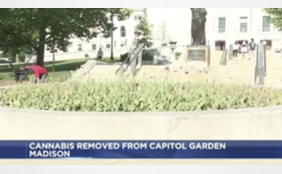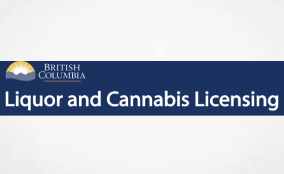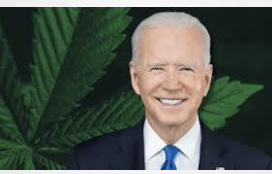The reefer madness in Australia continues. The anti – regulation crowd keeping plugging away and bandy huge imagined numbers around for the politicians to use on right wing radio and pepper in official reports.
Meanwhile as you’ll see in our next report in Australia the tight little medical cannabis sector keeps moving forward allowing a small amount of selected individuals and companies to profit
Cannabis use costs Australian workplaces an estimated $560.2 million.
Listen to Professor Ann Roche’s 2SER 107.3 radio interview https://2ser.com/the-4-5bn-cost-of-australias-cannabis-industry/ to find out more about how cannabis use impacts workplace productivity and absenteeism.
Click Image to listen
Ann’s interview draws on NCETA’s contribution on workplace costs to a recently released
NDRI report: Quantifying the Social Costs of Cannabis Use to Australia in 2015/16.
Cannabis use is costing Australia $4.5 billion a year according to a new report from drug and alcohol researchers. The National Drug Research Institute in Perth calculated more than 2 million people used marijuana in the study period 2015-16. This led to $4.4 billion in direct tangible costs, including criminal justice, health-care costs, and reduced productivity AND a further $100 million in intangible costs due to the premature death of 23 people, mostly through cannabis-related road traffic accidents, which resulted in more than 850 years of life lost.
One of the researchers, Ann Roche Director of the Flinders University National Centre for Education and Training on Addiction joined us to discuss this issue.
Yet in the USA at the University of San Diego
Study: After-Hours Cannabis Use Has No Negative Impact On Worker Performance
A recent study by San Diego State University shows that after-hours cannabis use by employees has no negative effects on workplace performance.
A San Diego State University study found that after-hours cannabis use has no negatives effects on workplace performance but did find a negative correlation between those who used cannabis before and during work with task performance.
In fact, Dr. Jeremy Bernerth, management professor at San Diego State University’s Fowler College of Business and study co-author, suggested that after-hours cannabis use may actually offer some work-related benefits.
“Individuals deciding to consume cannabis after finishing their work may be able to distract themselves from stressful on-the-job issues. The relaxation induced by cannabis may help employees restore energy spent during the day and they may subsequently return with more stamina to devote to their job once they are back on the clock.” – Bernerth in a statement
Jack Walker, management professor at Auburn University’s Raymond J. Harbert College of Business, joined Bernerth on the study, which surveyed 281 employees and their direct supervisors and “citizenship behavior,” or their willingness to voluntarily help the organization or their colleagues. Participating employees and supervisors were recruited through social media and with the help of university business students, though cannabis usage was not required of the participants.
Each employee was asked about the frequency and timing of their cannabis use as it relates to their work shift. The managers were asked to assess their employee’s task performance, citizenship behavior, and any counterproductive work behavior.
The researchers found the supervisors more often reported reduced citizenship behavior and counterproductive work behavior by employees who used cannabis before and during work hours but no “significant change in any of the work performance dimensions when employees used cannabis after work.”
Bernerth added that since the study found no negative effects when employees use cannabis after work, organizations would be “hard-pressed to provide legally defensible justifications for the continuation of policies prohibiting all forms of cannabis use.”
Bernerth said the study is the first in nearly two decades to “research cannabis usage in relation to workplace behaviors.”
Study: After-Hours Cannabis Use Has No Negative Impact On Worker Performance
STORIES & ARTICLES
SDSU Professor Finds After-Hours Cannabis Use Has No Impact on Workplace Performance
Although it has become increasingly accepted for medical and recreational use, cannabis is still considered among one of the most widely used illegal substances in the United States and in many European countries. A common assumption is that cannabis consumption before or during work hours causes substandard work performance, yet there has been very little scientific exploration regarding the impact of cannabis use after working hours.

Jeremy Bernerth, Associate Professor, Management Department
Dr. Jeremy Bernerth, management professor at San Diego State University’s Fowler College of Business and H. Jack Walker, management professor at Auburn University’s Raymond J. Harbert College of Business set out to determine the effects of different types of cannabis use (before, during and after hours) on work performance, especially as it relates to core job requirements, helping colleagues or their organizations, and counterproductive behavior in the workplace.
“Given the popularity of cannabis on a national level, it should be of little surprise that organizations spend billions of dollars each year addressing what many believe is a problem,” explained Bernerth. “To our knowledge, this is the first study to research cannabis usage in relation to workplace behaviors in nearly 20 years. We hope this research can provide organizations with the necessary information to structure their substance policies.”
Surveying Employees and Their Supervisors
The researchers studied key job requirements (called “task performance” in the study), the willingness to voluntarily help the organization or their colleagues (called “citizenship behavior”), and the counterproductive work behavior of employees by surveying 281 employees and their direct supervisors. Participating employees and managers were recruited through social media and with the help of university business students, though cannabis usage was not required of the survey participants.
Each employee was asked about the frequency and the timing of their cannabis use as it relates to their work shift (for example, how often over the past 12 months had they used cannabis within two hours before starting the workday). Their supervisors were asked to assess their employee’s task performance, citizenship behavior and counterproductive work behavior.
The Results
After tabulating all the responses, the researchers found a negative correlation between those who used cannabis before and during work with task performance. This indicates a decline in performance when using cannabis prior to or while on the job. There was, however, no relationship between using cannabis after work and one’s performance on the job.
They also found supervisors were more likely to report reduced citizenship behavior (or helpfulness) toward the organization and increased counterproductive work behaviors among employees who said that they used cannabis before and during work hours. However, the results showed no discernable effects for employees who used cannabis after work. The researchers also noted that there was no correlation between employee’s willingness to engage in citizenship behavior aimed at their coworkers with cannabis usage regardless of the time of usage.
While the results of the study showed that supervisors reported that employee cannabis use before or on the job diminished most areas of their performance, there was no significant change in any of the work performance dimensions when employees used cannabis after work hours.
“The findings are obviously consequential for scholars and organizations who believe that all cannabis use negatively impacts workplace behaviors,” said Bernerth. “Our research suggests there is no evidence that after-work usage compromises work performance as assessed by one’s direct supervisor.”
Cannabis Use May Offer Work-Related Benefits
Though the research doesn’t offer direct evidence, Bernerth suggests that after-hours cannabis use, may offer some work-related benefits. “Individuals deciding to consume cannabis after finishing their work may be able to distract themselves from stressful on-the-job issues,” said Bernerth. “The relaxation induced by cannabis may help employees restore energy spent during the day and they may subsequently return with more stamina to devote to their job once they are back on the clock.”
However, one of the major challenges facing employers with substance policies is determining when employees consume cannabis. Bernerth noted that testing for cannabis consumption (through urinalysis, for example) can only detect the presence of metabolites in the system as opposed to the frequency or time of use. This may make it difficult for organizations to defend strict substance policies. Said Bernerth: “Since our study shows that off-the-job cannabis use has little to no impact on workplace performance, organizations will be hard-pressed to provide legally defensible justifications for the continuation of policies prohibiting all forms of cannabis use.”
Note: This research was funded by the Fowler College of Business at San Diego State University




















